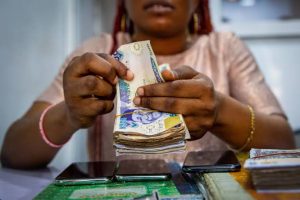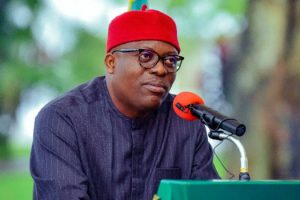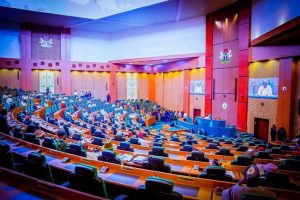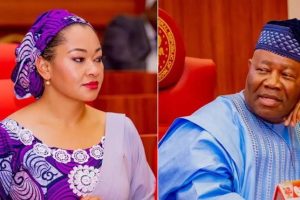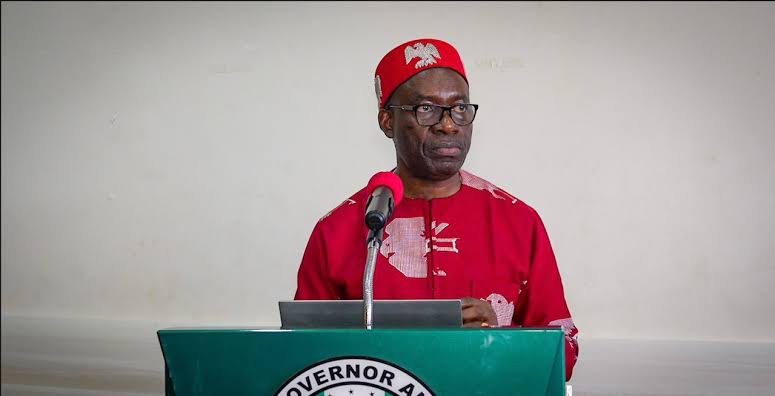
For long, there has always been a thin line between religion and politics. When religious leaders in society begin to hobnob with politicians behind public glare, it shows in the body language and verbal dispositions of the former. The induced clergy would begin to weave strange tales that conform to the dictates of the masquerades behind the veil. The pulpit becomes a platform for partisan pontifications, and what should ordinarily be pure spiritually nourishing sermons get substituted with disguised propagandist messages. Before society wakes up to the truth, religion would have gone on sale to the highest political bidder.
The foregoing trend makes one wonder if religious leaders in Anambra State have suddenly taken the place of opposition politicians, hiding behind condemnations of security issues to lob sponsored attacks against the state government. For instance, the latest outburst by Reverend Father Ebube Muonso against Governor Chukwuma Soludo’s administration demands a measured response, if only to set the record straight and protect public discourse from dangerous distortions, especially in an election year. Strangely, Father Muonso has now added verdicts on development projects in Anambra to his magisterial verbiage on security matters.
The cleric’s sweeping false claim that Governor Soludo has “not accomplished a single project” in Anambra State flies in the face of readily verifiable facts. Has telling lies now become a pastime of clerics? For the records, the Soludo administration has embarked on numerous infrastructure projects, including the ongoing construction of over 400 kilometers of roads across the state. Notable among these are the 26.4km Amansea-Amawbia dual carriageway, the 42km Awka-Enugu-Ukwu-Abagana-Ukpo-Dunukofia road, Flyover Bridge at Ekwulobia, and several strategic road projects in Okpoko, Onitsha, and other urban centres.
Beyond roads, the administration has made significant strides in healthcare delivery, with the enhancement of general hospitals, facilities at the Chukwuemeka Odumegwu Ojukwu University Teaching Hospital and the establishment of new primary healthcare centres, among others. The education sector has seen the recruitment of 8,115 teachers and the implementation of digital learning initiatives in public schools, not to talk of the game-changing introduction of free education policy in the public schools up to SS3. The space here is too limited to enumerate all developmental projects being implemented by the Soludo government.
What is particularly worrisome about Father Muonso’s reckless statements is not just their inaccuracy but the timing and tone of his criticism. His transition from legitimate concerns about security, which any citizen has the right to raise, to blanket condemnation of all developmental efforts suggests a possible political agenda that goes beyond pastoral concern.
The role of religious leaders in society is sacred and should remain above partisan politics. When clergy members begin to make demonstrably false claims about governance and development projects, it raises questions about their motivations and the interests they truly serve. Are these statements truly in service of the public good, or are they calculated to achieve political ends?
While Father Muonso’s concerns about security challenges in Anambra are valid and deserve attention, his recent rhetoric appears to have crossed the line from constructive criticism to political remonstrations. His comparison with other Southeastern states, while ignoring Anambra’s unique challenges and ongoing initiatives, seems designed to incite public discontent rather than contribute to meaningful dialogue.
Father Muonso would do well to remember that his primary calling is spiritual leadership, not political opposition. His pulpit should remain a place for moral guidance and spiritual uplift, not a platform for partisan politics or unsubstantiated allegations against government officials.
As Anambra approaches another election cycle, it is crucial for religious leaders to maintain their neutrality and moral authority. They should encourage informed political discourse based on facts rather than emotions or political affiliations. Father Muonso’s recent statements suggest a confounding departure from this principle.
Of course, while the right to criticize government policies remains fundamental in a democracy, such criticism must be grounded in truth and motivated by genuine concern for public welfare rather than political considerations. Father Muonso should reflect on whether his recent statements serve his calling as a spiritual leader or merely advance certain political interests at the expense of his moral authority.
By Christian ABURIME


